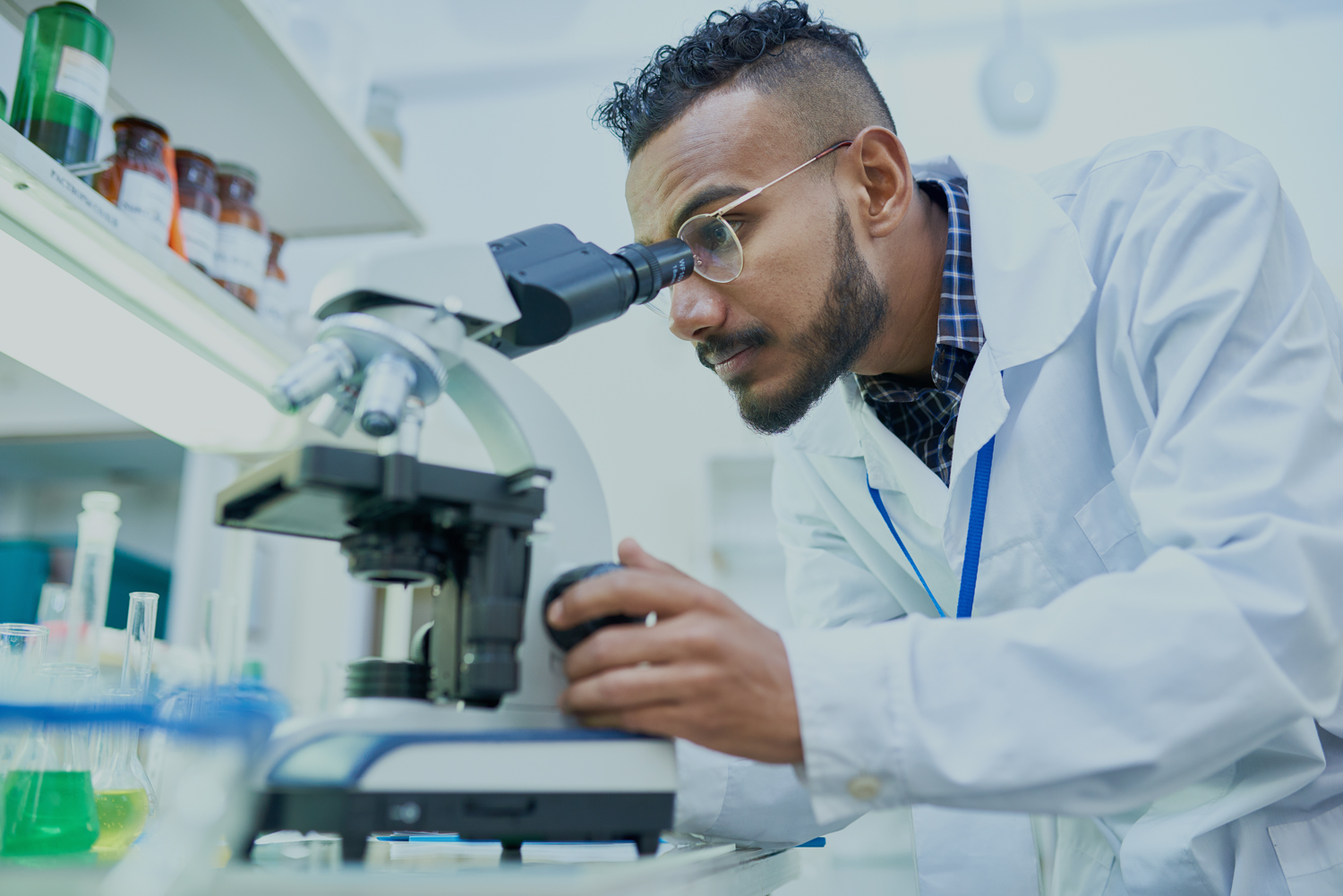
The LDSF is very proud to support clinical and basic science research into Loeys-Dietz syndrome. It is a huge part of our mission and we thank all our community who give financially and also participate in research to further our knowledge about LDS.
Research and Updates
Information about the natural history and management of individuals with LDS continues to evolve.
Advances in medical and surgical care are continually being made to help decrease complications for those impacted by LDS. Initial studies reporting past medical histories of individuals with LDS revealed early ages for first cardiac surgery and for the average age of death. While these seem like frightening statistics, the cases presented in this study were representative of retrospective medical information.
In the recognition of a new syndrome, it is often the most severe cases that first come to medical attention. The first cases do not reflect the current rise in success in the treatment of individuals with LDS, including aggressive surgical intervention and comprehensive imaging. As more individuals are being diagnosed with LDS, we are seeing an incredible spectrum of clinical severity, and we are learning more about the natural history of LDS.
In families with more than one member having the same gene mutation responsible for LDS we see a variety of physical symptoms and vascular involvement. Although LDS is diagnosed most often in children, there has been a growing number of diagnoses in adults who are 50 and older.
Internationally, various institutions are developing methods to improve management and care of individuals diagnosed with LDS. As we increase awareness and education in the medical community regarding the physical findings associated with LDS, we hope diagnoses will be made earlier to continue to improve medical outcome.
It is expected that the outlook for individuals with LDS will continue to improve as more is learned about the disorder. We remain optimistic and enthusiastic about the development of effective therapies for Loeys-Dietz syndrome.
Because of the rarity and the newness of the disorder, there may be research opportunities available to help physicians and researchers learn more about the various complications. Continue to check the Research Recruitment page of our site for any available research updates.
Recent Research Announcements

Recent Research Articles
Studies Seeking Participants
-
Researchers in the University of Pennsylvania Department of Ophthalmology are launching a study to investigate how Marfan Syndrome, Ehlers-Danlos Syndrome, and other inherited connective tissue diseases affect the eyes. The investigators believe that little is known about how these diseases present in the eyes, and hope that this study will provide more information and inspire future studies to develop targeted therapies.
The brief, 5-minute, anonymous survey asks for basic demographic information, genetic diagnosis, eye-related symptoms, and other health conditions. There is also an option to upload previously taken retinal imaging (e.g. fundus photography, optical coherence tomography). If you do not have your imaging with you currently, you will get a survey return code that you can use to upload images later.
The survey can be accessed at here.
-
Dr. Pamela Guerrerio at the National Institutes of Health (NIH) is conducting a research study to learn more about Loeys-Dietz Syndrome and other related genetic syndromes, including Shprintzen-Goldberg syndrome.
Evaluations may involve consultations with specialists (from Allergy, Immunology, Endocrine and Bone Health, Dentistry, Craniofacial Team, Occupational and Physical Therapy, Adult Gastroenterology, Audiology, ENT, and/or Pain and Alternative Medicine) and may include a blood draw, answering questionnaires, and radiology studies.
Patients will not be charged for any service offered, and medical insurance is not required. The NIH will pay for travel and accommodations for any necessary follow-up evaluations. Interested patients should contact Ellen Zektser (zektsere2@niaid.nih.gov) to learn more about the study.
Thank you for your consideration and support in trying to make further inroads into our understanding of Loeys-Dietz syndrome and related diseases.
-
Are you interested in helping researchers develop the world’s largest database for children and young adults with genetic aortic disease? Researchers at Texas Children’s Hospital are interested in learning more about young people with aortic disease that has a genetic basis. They are asking for your help because there are currently no medical guidelines on how to best manage aortic dilation in children, and little is known about the long-term outcomes of these genetic conditions.
In an effort to learn more, researchers will collect clinical information from your medical records to better understand how the aorta changes over time, and how your genotype (your unique genetic code) affects your disease. This information will help create guidelines that will provide better tools for doctors to diagnose, estimate risks, and treat children and young adults with genetic aortic disease. These guidelines aim to improve the care and quality of life for individuals diagnosed with these conditions.
One is eligible to participate in the CLARITY study if they were diagnosed under age 50 and meet one of the following criteria:
Classic Marfan syndrome with either FBN1 mutation or history of lens dislocation/subluxation
Early-onset/ Neonatal/ Infantile Marfan syndrome with FBN1 mutation
Loeys-Dietz syndrome with TGFBR1, TGFBR2, TGFB2, TGFB3, SMAD2, or SMAD3 mutation
Vascular Ehlers-Danlos syndrome with COL3A1 mutation
Arterial Tortuosity syndrome with SLC2A10 mutation
Shprintzen-Goldberg syndrome with SKI mutation
Cutis Laxa Type 2B with recessive EFEMP2/FBLN4 mutations
ACTA2-associated aortic or arterial disease
FLNA-associated aortic or arterial disease
LOX-associated aortic or arterial disease
MYLK-associated aortic disease
MYH11-associated aortic disease
To participate, you will be asked to sign a consent form and a medical records release form to allow the research team to collect personal medical information related to your genetic diagnosis. This information will be stored in a secure database and used for study analysis. Other than signing these forms, research participants will not be asked to take any further actions, such as attending research visits, participating in clinical trials, etc.
For more information, please visit the study website: CLARITYREGISTRY.COM
If you have any questions, or if you are interested in enrolling, please contact the study research coordinator, Nadia Espahbodi at NXESPAHB@TEXASCHILDRENS.ORG.
-
The NIGMS (National Institute of General Medical Sciences) Repository, housed at the Coriell Institute, is a research biobank that collects blood and/or tissue samples from individuals with genetic diseases and makes them into cell lines and DNA for scientists to use in biomedical research. Loeys-Dietz syndrome (LDS), Vascular Ehlers-Danlos syndrome (VEDS), and Marfan syndrome were recently listed on the American College of Medical Genetics and Genomics list of actionable conditions for increased research.
Coriell is now accepting blood (for lymphoblasts) and skin biopsy (for fibroblasts) samples from individuals with LDS, VEDS, and Marfan syndrome as well as their family members and relatives from domestic and international locations around the world.
Donors will receive a sample collection kit, instructions, and all necessary materials for collecting samples and returning the kit free of charge. Sample donors are required to submit supporting clinical data (e.g., genetic test results, medical records, physician summary records) that describes the diagnosis.
To submit a sample to the NIGMS Repository, email NIGMS@CORIELL.ORG with the following information:
The requested number of blood and skin biopsy collection kits for your family member(s)
Full name and age (for children) of each family member who will donate samples
The name, address, and phone number of the person or clinician to whom the collection kit(s) should be shipped.
Coriell does not conduct its own research but provides the materials for scientists around the world to perform research on genetic disorders. Also, Coriell does not provide donors with any results regarding their genetic disease nor information on their sample itself. For more information about Coriell and the sample donation process click here.
Make a donation to support the Loeys-Dietz Syndrome Foundation.








